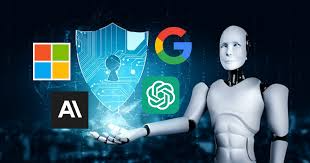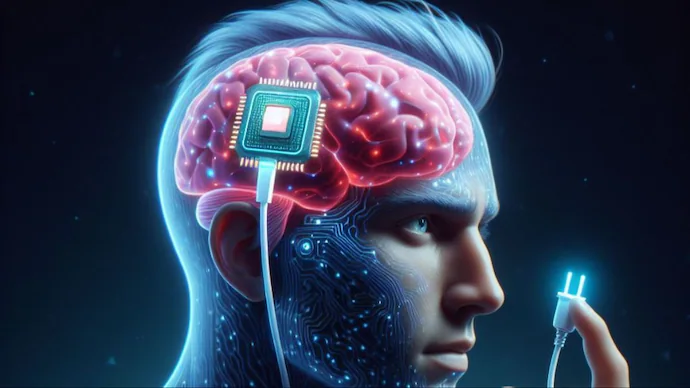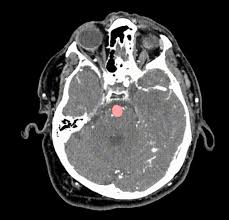
Meta and Google Collaborate on AI Safety Guidelines Big Tech Unites for Ethical AI
In a landmark collaboration, technology titans Meta and Google have jointly introduced a framework for AI safety guidelines, marking a significant moment in the evolution of responsible artificial intelligence. This strategic alliance aims to set a global standard for the ethical development, deployment, and oversight of AI systems, especially as generative models and large language systems become embedded in everyday life. Amid rising public scrutiny and growing regulatory pressure, the move reflects a broader recognition the time for isolated AI ethics policies is over, and industry wide alignment is essential.
The newly introduced guidelines, referred to as the Unified AI Responsibility Charter (UARC), outline best practices that both companies will adopt internally and promote across the tech ecosystem. The charter emphasizes five core pillars safety, transparency, fairness, accountability, and collaboration. These principles are not just theoretical; they are tied to practical benchmarks, such as mandatory risk audits before product releases, clear user disclosures for AI assisted features, and internal red teaming of high impact systems. Meta and Google believe that the UARC could form the baseline for an eventual global governance framework that all responsible AI developers would voluntarily adopt.
A major innovation in the UARC is the shared safety verification protocol, a technical and procedural standard to independently test advanced AI models. Both Meta’s LLaMA and Google’s Gemini architectures will undergo coordinated stress testing across adversarial scenarios, misinformation generation potential, and data security vulnerabilities. The results, while not all publicly disclosed, will inform regular whitepapers released by both companies to foster transparency without compromising proprietary safeguards. These whitepapers will also guide regulators and smaller developers looking for best practices.
One of the central themes of the collaboration is the need for interoperable safety infrastructure. Meta and Google are co developing a tool suite known as SafeStack, which includes API level safety filters, dynamic content classifiers, and real time misuse detection dashboards. SafeStack is intended to be open source, allowing smaller AI developers to implement robust safety checks without incurring high costs. The companies argue that democratizing safety tools is essential to leveling the playing field and ensuring that ethics aren't limited to companies with billion dollar budgets.
The collaboration also addresses the rising public concern over AI’s role in misinformation, bias, and data privacy. Both companies have committed to improving dataset transparency by releasing “dataset lineage” maps for their AI training data outlining what types of content were used, how consent was handled, and which datasets were excluded for ethical reasons. Additionally, they propose establishing a Global Independent AI Oversight Forum, comprising researchers, ethicists, and technologists tasked with evaluating ongoing compliance with the UARC principles. Though the forum won’t have enforcement power, its assessments will carry weight in shaping public trust and policy discussions.
Meta and Google’s initiative is also a strategic response to the growing patchwork of global AI regulations. In the European Union, the AI Act is entering its enforcement phase, while countries like Canada, Australia, and India are drafting their own national frameworks. Rather than resisting regulation, both companies are aligning the UARC with these global standards to ensure smoother compliance and fewer contradictions across jurisdictions. The goal, according to internal statements, is to “accelerate innovation responsibly, not restrict it reactively.”
While the tech world has largely welcomed the collaboration, some experts remain skeptical. Critics argue that voluntary guidelines lack teeth and may be used to preempt more stringent regulation. Others caution that concentrating ethical authority in the hands of two major corporations could unintentionally stifle diversity in ethical perspectives. Meta and Google addressed these concerns by pledging to open the UARC for public consultation and independent review. They will host biannual summits inviting academia, civil society, and international bodies to shape future revisions.
Looking ahead, Meta and Google plan to publish a shared roadmap detailing how AI systems can be aligned with democratic values, especially in the face of accelerating advancements like autonomous agents and synthetic media generation. The collaboration may also include partnerships with educational institutions to develop AI safety curricula and training programs for developers and users alike. Ultimately, this partnership signals a maturing moment for the AI industry. The question is no longer if AI should be governed, but how that governance will be collaboratively constructed and if the most powerful players are ready to lead by example.
Related Post
Popular News
Subscribe To Our Newsletter
No spam, notifications only about new products, updates.















